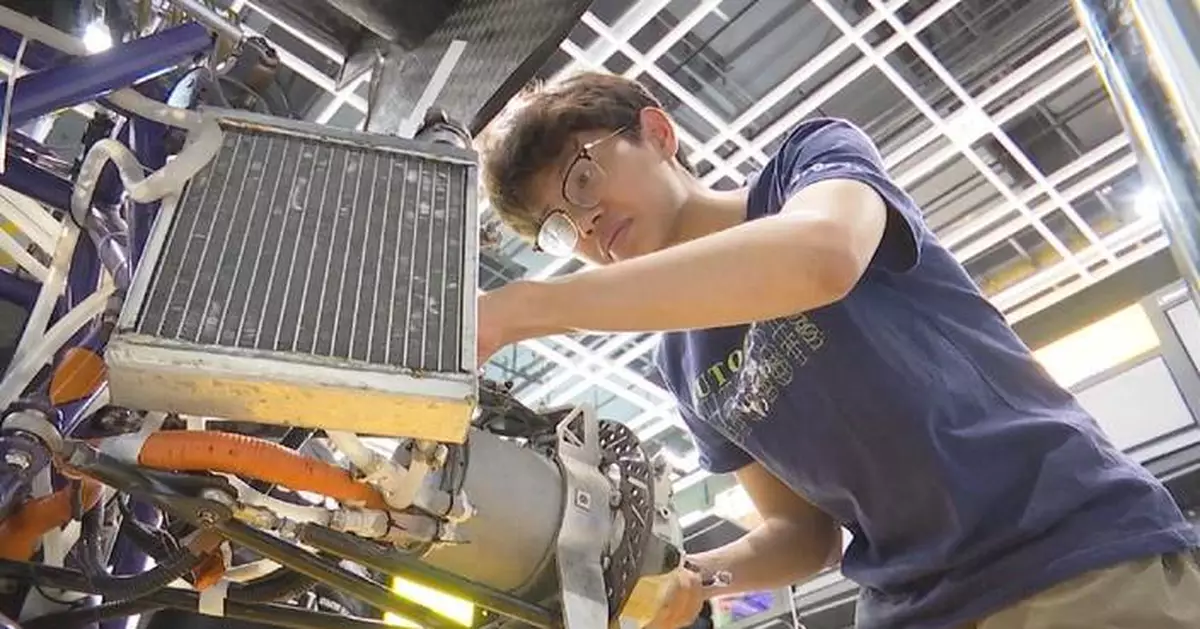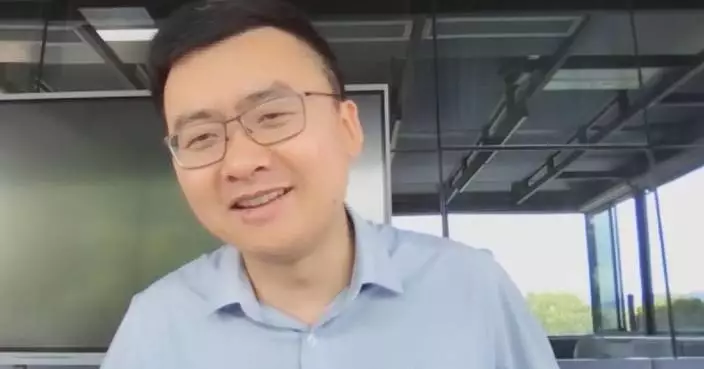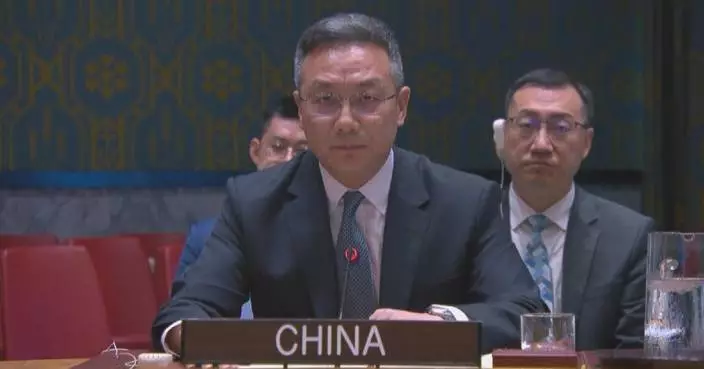China's thriving new energy vehicle (NEV) industry is fueling an unprecedented demand for skilled professionals due to its high level of automation and intelligence.
According to the Ministry of Industry and Information Technology (MIIT), the industry is projected to require 1.2 million talents by 2025.
The rising demand for talents has been witnessed firsthand by a laser radar manufacturer for new energy vehicles based in Shenzhen, an innovation hub in south China's Guangdong Province.
Xie Xing, the head of human resources at the company, revealed a significant surge in recruitment compared to the previous years.
"We have seen a recruitment growth in our hardware division for laser radar, as well as in the chip division, the algorithm and software development division. Over the past two years, our recruitment numbers have nearly doubled. Especially in the division of AI algorithms and software development, the recruitment is even larger," said Xie.
The thirst is strong especially for high-skilled talents in research and development, manufacturing, and product service sectors, as well as for sales and maintenance personnels.
The demand for multidisciplinary talents is huge as well.
"In the job market, there will be a particularly strong demand for high-end, multidisciplinary, and younger professional talents," said Zhang Lei, vice general manager of a human resource company in Shenzhen.
The increasing demand for talent in the new energy vehicle industry has led to more and more universities and colleges to introduce programs and disciplines related to new energy vehicle technology.
As of 2023, data indicated that out of China's 1,545 higher vocational colleges, 716 offered programs in new energy vehicle technology, an increase of 1.5 times compared to 2018.
Shenzhen Technology University, for instance, has witnessed a surge in enrollment in its various fields of study.
"In the first year, we had around 50 students. Now we have more than 200 students annually, with a curriculum covering a wide range of subjects including vehicle mechanics, electronics, battery systems, electrical control, intelligent driving, robot sensing and data fusion, and even business and ergonomics. Our goal is to train over 500 students per year," said Li Heyan, a professor of Shenzhen Technology University.
With more and more schools offering programs in new energy vehicle technology, the talent shortage in the industry is expected to be eased in the foreseeable future.
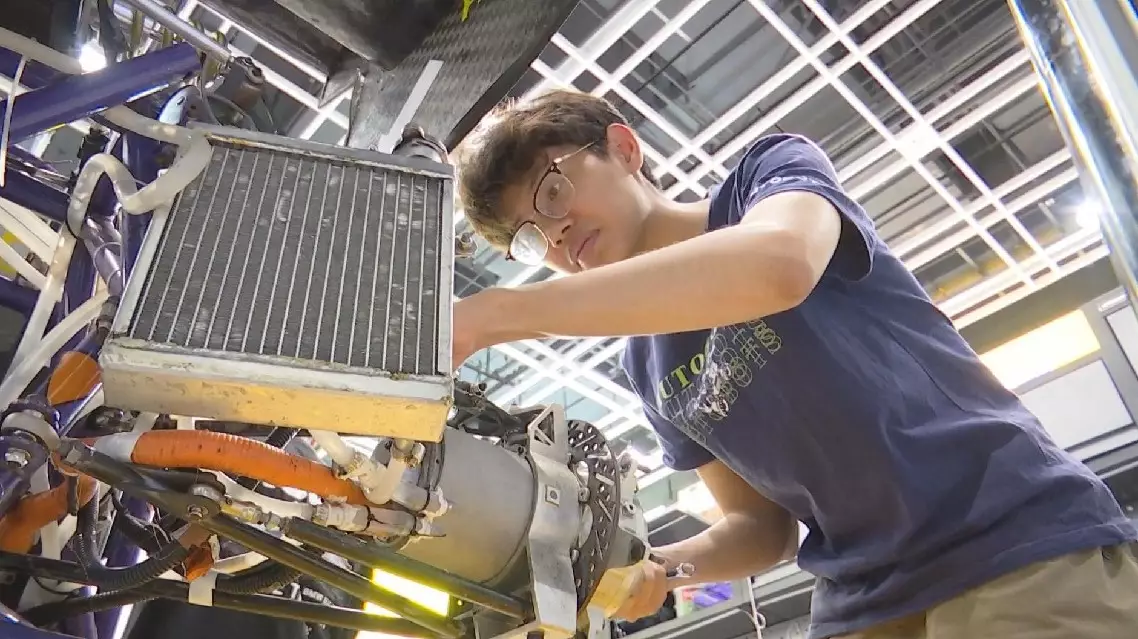
China's NEV industry sees increased demand for talents amid automation, intelligence development
Mounting uncertainty over the U.S. tariff policies under President Donald Trump's administration is fueling distress among the farmers of Iowa state, a U.S. state long regarded as the "granary and breadbasket of America," and disrupting the agricultural sector, particularly its soybean industry.
Iowa's agricultural sector is heavily export-dependent, and the U.S. abuse of tariffs has left the state's farmers uncertain about how to plan for the future amid sudden changes in policy direction.
"It has been really difficult, especially with the stress on the market since the announcement of the tariffs. Any unsold soybeans that we have now will sell at a loss. It's what does the next three years look like in this very uncertain environment with different tariff ideas every day, every week. Like how do we plan as a business for that," said farmer Corey Goodhue.
The uncertainty has pushed some farmers to shift to alternative crops like corn, which currently faces fewer trade obstacles. But the switch comes at a cost. Prices for fuel, fertilizer, and other inputs have surged under the broader tariff regime.
Grant Kimberley, a large-scale farm operator and senior director of market development for the Iowa Soybean Association, said costs are rising across the board.
"We don't ever like to see food and agriculture used as a weapon in a trade disagreement because it doesn’t do either country any good," he said.
Data from agricultural equipment manufacturers showed the cost of machinery in the United States rose 18 percent year on year in spring 2025.
The ripple effects of falling farm income are already being felt in the wider community.
"So I think the tariffs have a trickle-down effect. As for the commodity, if the farmers don't make money, then no one else benefits. John Deere ( the world's leading tractor maker) lays off employees, and this situation just works its way through the community. So small businesses are really struggling with it," said Goodhue.
Policy analysts have warned that the longer-term economic damage could extend well beyond the farm belt.
"At this point of time, it has not yet begun to bite because people have already had inventories of these goods at the lower tariff rates. But soon, at some point of time, and it will be soon that the impact will be felt at grocery store counters. We will see areas where the U.S. was very competitive losing its competitiveness, and with other suppliers taking their position," said Sourabh Gupta, senior Asia-Pacific policy specialist at the Institute for China-America Studies.
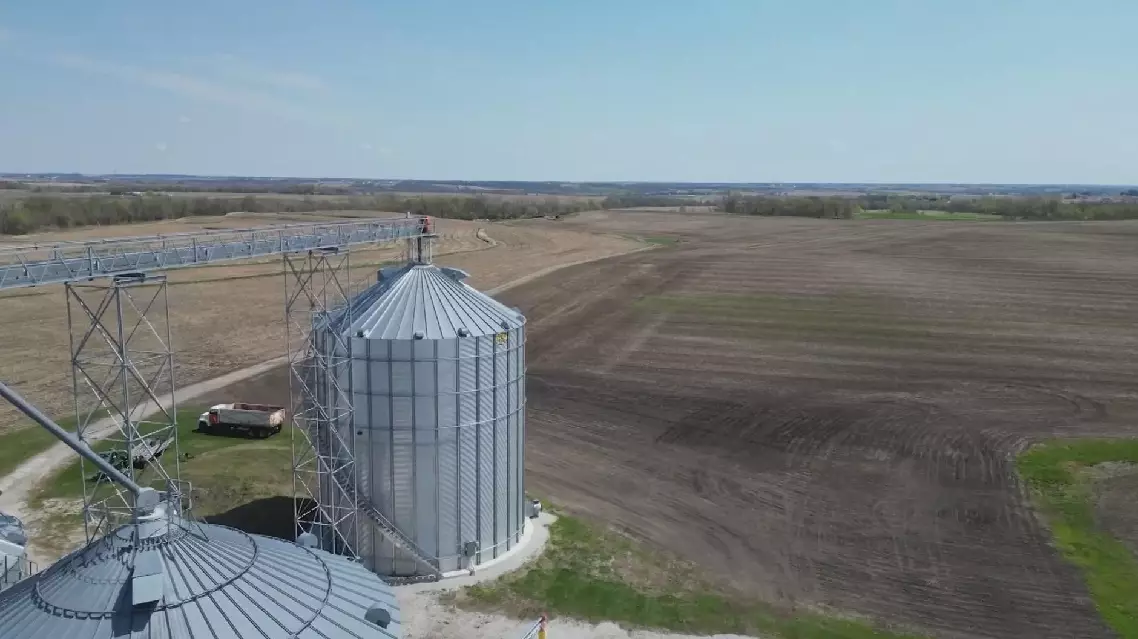
US tariff policy turmoil threatens Iowa's farmers, disrupting exports



